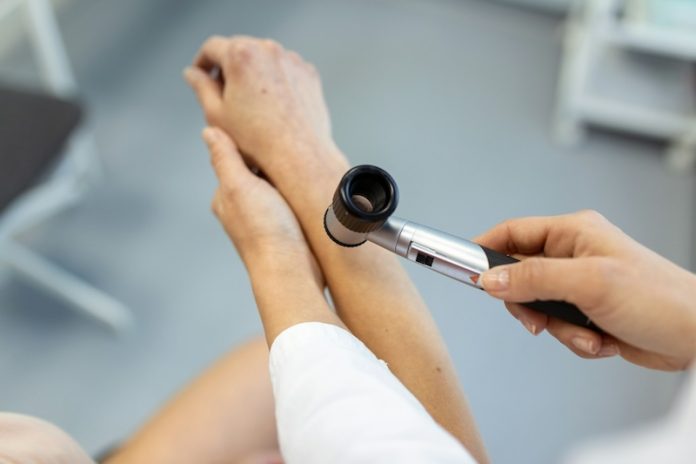
In Australia, high blood pressure, or hypertension, affects over a third of adults aged 18 and above. Left untreated, it can lead to severe health problems like stroke and heart disease.
Managing hypertension often involves medications combined with lifestyle changes such as healthier eating and regular exercise.
However, a recent study from UNSW Sydney has raised concerns about one widely used medication: hydrochlorothiazide.
Hydrochlorothiazide is a common drug prescribed to control high blood pressure. While effective, the study suggests it may increase the risk of skin cancer, particularly in older individuals.
The medication has properties that make the skin more sensitive to sunlight, potentially raising the likelihood of developing cancers like malignant melanoma and squamous cell carcinoma.
This finding is based on data from the Australian Department of Veterans’ Affairs (DVA), which provided anonymous records of cancer cases, hospitalizations, and medication use among DVA healthcare cardholders in New South Wales.
The study analyzed data from 2004 to 2015, focusing on individuals aged 65 and older.
The research included 45 cases of lip cancer and 659 cases of malignant melanoma among people taking hydrochlorothiazide. These were compared to a control group of over 13,300 individuals who had not been diagnosed with these cancers.
The results showed a clear link between hydrochlorothiazide use and an increased risk of both types of skin cancer. Notably, the longer people used the medication, the higher their risk of developing lip cancer.
Despite these concerning findings, the researchers emphasize that patients should not stop taking their blood pressure medication without consulting a doctor. High blood pressure is a serious condition, and its management is crucial for preventing life-threatening complications.
The study highlights the importance of doctors being aware of this potential risk. Physicians may need to take extra precautions, such as recommending regular skin checks for patients taking hydrochlorothiazide.
They might also advise patients to be vigilant about sun protection, including wearing sunscreen, protective clothing, and avoiding direct sun exposure during peak UV hours.
To address the issue, the product information for medications containing hydrochlorothiazide has been updated. This ensures that healthcare professionals are informed about the possible link to skin cancer and can take appropriate steps to monitor and protect their patients.
The findings are consistent with previous international studies, which also reported an association between hydrochlorothiazide and skin cancer.
The study, led by Dr. Benjamin Daniels and his team, was published in Basic & Clinical Pharmacology & Toxicology. It underlines the importance of balancing the benefits of blood pressure control with the awareness of potential side effects.
For those concerned about skin health, the research serves as a reminder of the importance of sun protection, especially for older adults or those taking medications that increase sensitivity to UV light.
It also highlights the value of regular medical check-ups to detect and address health risks early.
While this study focuses on the potential risks of hydrochlorothiazide, it does not diminish the importance of managing high blood pressure effectively. Patients are encouraged to discuss any concerns with their doctor to find the best approach for their individual health needs.
If you care about cancer, please read studies about vitamin D and bowel cancer, and a cautionary note about peanuts and cancer.
For more health information, please see recent studies about the link between ultra-processed foods and cancer, and everyday foods to ward off pancreatic cancer.
Copyright © 2024 Knowridge Science Report. All rights reserved.



